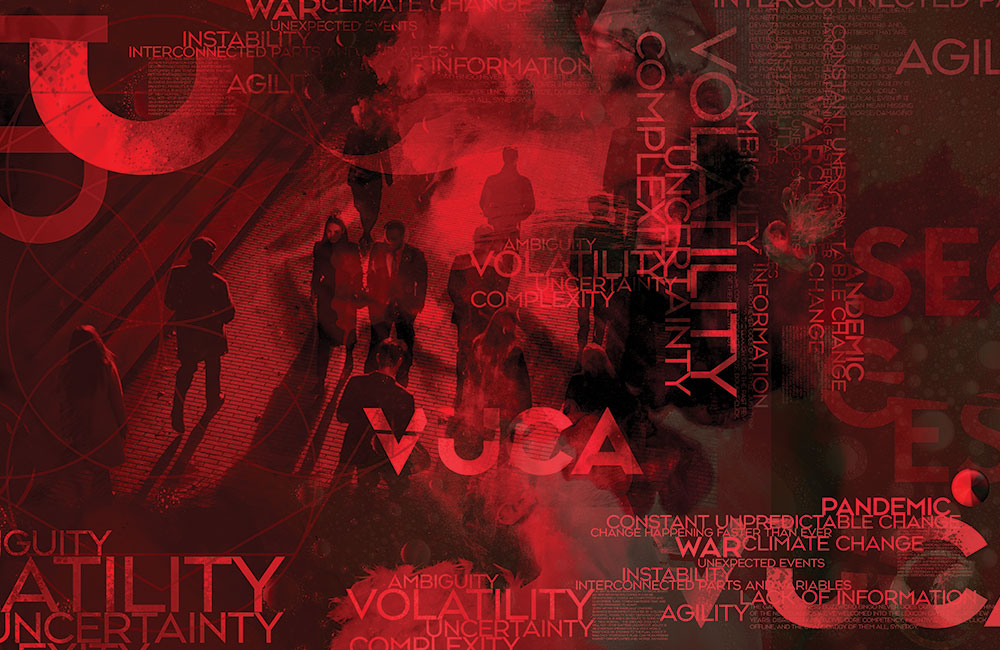VUCA 101: The Elements Defined And How To Prepare For Each
VUCA Element 1: Volatility
What it is . . .
A situation that is unstable or unpredictable, yet not necessarily complex or hard to understand. Change is likely.
Example . . .
Fossil fuel prices are quite volatile, especially today. While the basic forces that affect fuel prices are easy to understand, they are often beyond control and/or difficult to predict.
Being prepared . . .
When facing volatility, an organization must focus on developing agility—by, for example, stockpiling key resources, from raw materials to talent, in order to prepare for a “long winter.”
VUCA Element 2: Uncertainty
What it is . . .
A situation characterized by a lack of knowledge that hinders the ability to forecast future events. Change is possible but not certain.
Example . . .
The two decades following the terror attacks of September 11, 2001, have been a period of sustained uncertainty. There has been little information with which to determine if, when and where subsequent attacks will occur.
Being prepared . . .
An organization must redouble its efforts to gather and interpret information to make uncertain situations more certain and more manageable.
VUCA Element 3: Complexity
What it is . . .
A situation characterized by multiple factors that must all be considered and analyzed in order to understand it. Change requires processing a great deal of relevant information.
Example . . .
Expanding a business into a new country is complex because of a multitude of new regulations, tariffs, consumer habits, supply chain challenges and so on.
Being prepared . . .
Organizations must be prepared to adapt to new environments rather than holding on to existing structures and processes; this allows them to take advantage of complexity rather than fighting against it.
VUCA Element 4: Ambiguity
What it is . . .
A situation in which there is doubt around the relationship between cause and effect. There is little historical context, and there are many unknown unknowns.
Example . . .
The future value of crypto-currency is difficult to forecast; while some pundits believe crypto is a hedge against inflation, others believe it has no intrinsic value and will decline in value in times of inflation.
Being prepared . . .
When faced with a situation for which there is little historical precedent, the key to success is experimentation. An organization must be willing to test multiple strategies to discover which is best suited to a new environment.
This article appeared in the Summer 2022 issue of Insigniam Quarterly with the headline “IQ Boost: VUCA 101.” To begin receiving IQ, go here.



